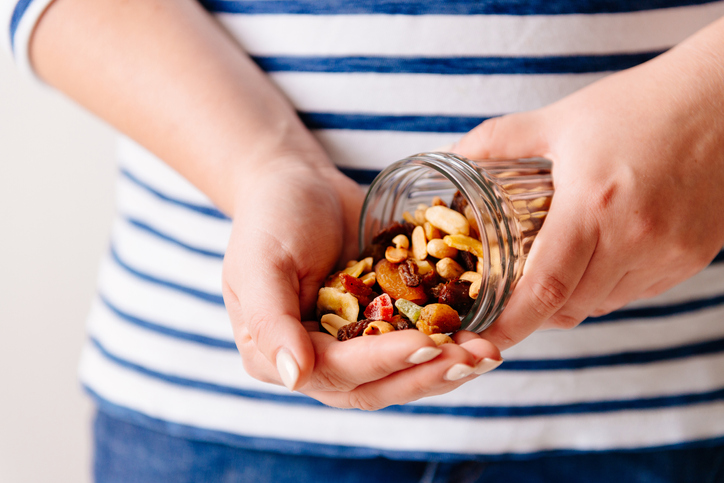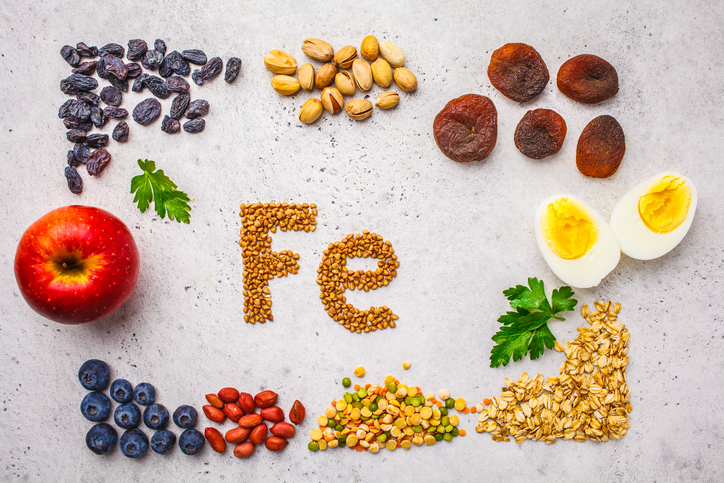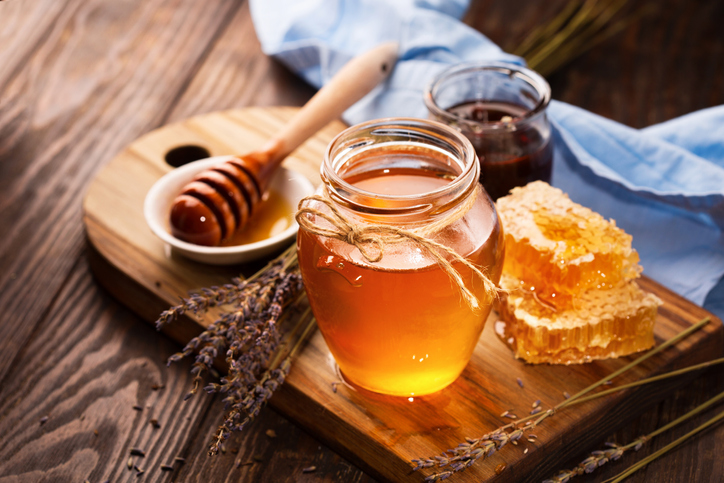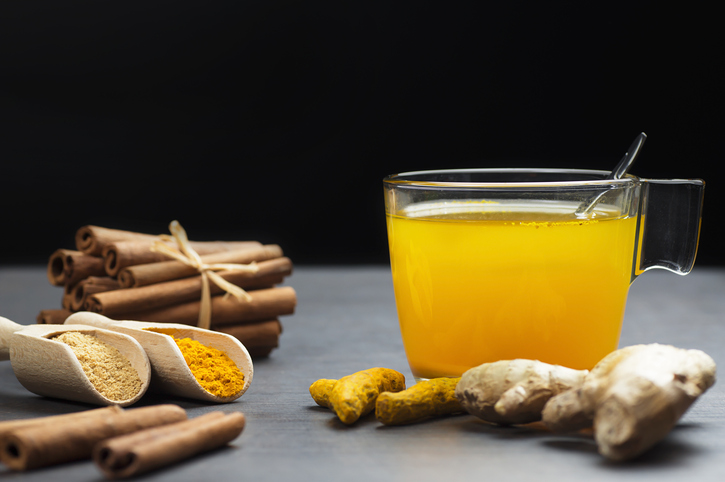With winter come long nights, tasty snacks, stylish outfits, as well as the struggle to stay healthy to enjoy the season to the fullest. Winter also comes with a host of problems such as health issues such as flu, cough, and even weight gain caused by the comfort foods we eat to pass those long chilly nights.
To stay healthy during winter, it is necessary to prioritize our healthy eating habits. We have come up with some of the best healthy diet tips to help everyone stay healthy in this cold season. Let’s now talk about them.
1. Increased Vitamin C Intake

Vitamin C is majorly known for boosting the declining immune system; however, it has several other benefits as well, especially for the winter season. Vitamin C is great for fighting winter diseases, such as cold and cough.
Eating vitamin C-loaded foods can actually help you fight the cold weather and increase iron absorption. Fruits like oranges, guava, kiwi, papaya, while vegetables like broccoli, tamarillo, and potatoes are loaded with vitamin C. Seasonal fruits and vegetables such as grapefruit, lemons, broccoli, Brussels sprout, oranges, and carrots can easily be found during winter. This winter, make sure you add enough vitamin C-loaded foods to your diet and boost your immunity.
2. More Vitamin D rich foods

In winter, the sun goes on a break, and we humans don’t get enough vitamin D from sunlight. To ensure that you do not go through vitamin D deficiency, you need to increase the intake of foods having more vitamin D.
Vitamin D not only helps in the absorption of calcium but also helps you feel better and fight off those winter blues. Foods like cheese, egg yolks, beef, orange juice, tuna, salmon, and soy milk are loaded with vitamin D and other nutrients required for a healthy immune system.
Other than adding vitamin D-filled foods to your diet, also try to get some natural sunlight whenever you can.
3. Avoid Comfort Foods

Eating too much comfort food becomes essential for most people during winter, which is not good. Comfort food causes fast weight gain during winter, and most people don’t even notice that their portion size has increased.
Foods like pasta, potatoes, and rice can easily be over-served, which is why it is important to look out for the portion size; maybe think twice before refilling that plate with cheesy pasta. Weight gain is a major problem that most people face during winter; however, watching the portion size and avoiding comfort food can save you from worry.
4. Eat More Dry Fruits and Nuts

Snacking on nuts and dried fruits is much better than munching on high-calorie snacks that don’t even have any health benefits. Dried fruits such as dates and figs are full of calcium and other nutrients essential for the human body. Moreover, nuts like almonds, cashews, pistachios, and others consist of healthy fat, minerals, nutrients, and fiber. Moreover, nuts and dried fruits help regulate food intake, i.e., they fill you up and don’t let you eat too many calories.
The unsaturated fats in nuts work as a barrier against heart diseases, while the dried fruits can be a great energy source when eaten with warm milk.
5. Eat Iron-rich Foods

Iron deficiency in winters is normal, and no, it is not a myth. To save yourself from iron deficiency, make sure you have added iron-rich foods to your diet during winters. Iron is necessary for the human body throughout the year; however, you may want to increase the intake in winter. Foods such as green vegetables, lentils, red meat, and dry fruits are loaded with iron and other nutrients, and you can easily find them as well.
6. Use Honey in Beverages and as a Topping

Another great thing to do to stay healthy during winter is swapping sugar with honey. Honey is a natural antiseptic as well as an organic sweetener that you can use in all kinds of beverages, including tea, or even use as a topping for salads. However, if you are diabetic, you will have to follow caution while using honey.
Garlic tea with honey can help relieve coughs and colds. The antiseptic nature of honey helps in boosting the immune system as well as treating existing problems.
7. Use Warming Spices in Foods

Spices such as ginger, cinnamon, star anise, and cloves are considered warming spices due to the warmth they provide when eaten. You can add them to curries, soups, coffee, tea, and other hot beverages to keep your body warm in the chilly weather of winters. It is great to add such ingredients to our daily food to make our bodies tolerant of cold.
8. Stay Hydrated

During winter, most people do not feel thirsty as often as in summers, which can lead to dehydration. Not feeling thirsty does not mean that your body is fully hydrated; it’s just the cold weather that isn’t letting you feel it. Instead of forgetting to drink water, make sure you are drinking eight glasses of water a day.
Dehydration can lead to several health issues, such as dry skin and chapped lips. Therefore, always have a water bottle with you at all times and drink enough water from it.
Some other things you can do to stay healthy this winter season
1. Get as much Sunlight as You Can

Yes, sunlight can be a bit harder to find in winter, but get as much as you can whenever you get a chance. Natural sunlight is a direct source of vitamin D, which helps absorb calcium in your bones, which is why it is important to get sunlight every now and then. You can either go for a short walk or just sit on your lawn enjoying a cup of coffee while absorbing that sunlight.
2. Get Enough Sleep

Winter nights are long, and we often spend them binge-watching shows or with friends and family. However, getting enough sleep is as important as any other thing to keep you healthy. Make sure you have a proper sleeping pattern. Sleep early and wake up early to get that sunlight as well.
3. Wear Warm Clothes

To keep yourself safe from cold weather, make sure you are always wearing warm clothes. Especially when going outside, do not forget to cover your hands, feet, head, and rest of your body properly.
4. Exercise Regularly

Cold days might make you want to stay in your cozy blanket and not work out at all. However, it is necessary to keep your body working to stay healthy and fit. You can go jogging, hit the gym, or simply do a workout at home; the choice is yours.
FAQ- Healthy Diet Tips for the Winter Season
1. What should we eat in winter to stay warm?
When the cold hits and the shivers start back up, most of us want to stay warm. We do that by layering ourselves up in a million different layers.
However, there are a few different kinds of foods which if eaten, can provide you warmth. These foods do this by having fats and other useful nutrients that help our adipose tissues in keeping us warm and toasty.
Here is a list of a few foods that can help keep you warm in these chilly times.
- Dry fruits. Dry fruits are packed with a lot of healthy fats that can help support the adipose tissues.
- Whole grains
- Jaggery
- Cinnamon. This comes as no surprise to anyone as all of our winter drinks have a splash of cinnamon to make them taste extra yummy
- Honey. This food is extremely useful in helping fight off colds and cases of flu that are prevalent in the winter months.
- Ginger
- Ghee
- Saffron
2. Which vitamins should we take in winter?
In the winter months, we should not change our diet necessarily; however, there are a few changes that, if made, can really help us stay healthy and fit.
We all know that days are shorter in winters. Those who live in the northern parts of the world know that better than anyone. Due to these shorter days, the UVB that comes through the atmosphere lowers considerably as compared to during the summer months. Hence, we often lack vitamin D. Due to the lack of vitamin D from the sun, it is essential that we take supplemental vitamin D so that we do not feel the effects of vitamin D deficiency.
Supplemental vitamin D can be taken in the form of dietary vitamin D ideally or through capsules or injections.
Upping your intake of vitamin C can also be extremely beneficial. There is oftentimes an increase in cases of flu and coughs around this time of the year so taking in more vitamin C to increase your immunity can be extremely beneficial.
3. What fruits should you be eating in winter?
In winter, you should be consuming fruits that are nutritional and have all the necessary vitamins that you might be missing out on. Here are the fruits that we think are extremely beneficial during the winter
- Oranges. As citrus, oranges are extremely high in vitamin C which is very beneficial in winters. Due to the cold, most of us are at risk of catching the flu, hence, we should try to boost our immunity as much as possible by upping our intake of vitamin C.
- Apples
- Grapes. Although grapes are available all year long, they are extremely beneficial in the winter as they have a lot of antioxidants in them
- Strawberries
- Kiwis
4. What foods have a lot of vitamin C in winter?
Vitamin C is extremely beneficial for us all year long. It helps us boost our immunity so that we do not get sick as often. Although you should ensure that you are meeting your daily vitamin C intake every day of the year, this particular vitamin becomes a little more important during these winter months. The reason is that people tend to get sick more often during the cold and enough vitamin C in our system ensures that we do not fall victim to the sniffles.
Some foods that will help you combat various diseases by increasing your vitamin C are listed here.
- Potatoes
- Peppers
- Citrus fruits like oranges, grapefruits, etc
- Vegetables, especially those that have dark leaves
- Strawberries
- Cranberries
- Kiwis
- Broccoli
Conclusion
Winters are always fun but, there is always that fear of getting sick. If you have a healthy diet and lifestyle, that worry won’t be a bother hence, it is important that you take care of your diet and in turn your immune system. By staying hydrated, eating iron-rich food, and other things listed in this article, you can make sure that you can enjoy winters to the fullest.

